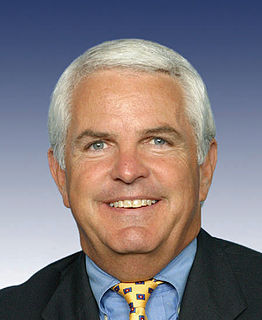A Quote by John Shadegg
Health care comprises nearly 20 percent of our national economy, but outdated bureaucracy and red tape have stifled competition and raised costs. As a result, today more than 45 million are without any health coverage.
Related Quotes
We are unique among advanced countries that we don't have universal health care. My hope was that I was able to get a hundred percent of people health care while I was president. We didn't quite achieve that, but we were able to get 20 million people health care who didn't have it before. And obviously some of the progress we made is now imperiled because there's still a significant debate taking place in the United States. For those 20 million people, their lives have been better.
Is it just a coincidence that as the portion of our income spent on food has declined, spending on health care has soared? In 1960 Americans spent 17.5 percent of their income on food and 5.2 percent of national income on health care. Since then, those numbers have flipped: Spending on food has fallen to 9.9 percent, while spending on heath care has climbed to 16 percent of national income. I have to think that by spending a little more on healthier food we could reduce the amount we have to spend on heath care.
What sensible people have got to do is not simply repeal the Affordable Care Act without any alternative, but you've got to sit down and say it's OK, what are the problems. How do we address it? How do we move to universal health care? How do we lower prescription drug costs? How do we make sure that people don't have outrageous deductibles? You just don't throw 20 million people off of health insurance. You don't privatize Medicare.
The rise in health care costs since Obamacare, the Affordable Care Act was passed, have been at their lowest rate in 50 years. Those savings have extended the Medicare trust fund by 11 years. So we've got a baseline of facts.So it is true theoretically that all that progress can be undone, and suddenly 20 million people or more don't have health insurance.
Forests are breaking out all over America. New England has more forests since the Civil War. In 1880, New York State was only 25 percent forested. Today it is more than 66 percent. In 1850, Vermont was only 35 percent forested. Now it's 76 percent forested and rising. In the south, more land is covered by forest than at any time in the last century. In 1936 a study found that 80 percent of piedmont Georgia was without trees. Today nearly 70 percent of the state is forested. In the last decade alone, America has added more than 10 million acres of forestland.
































